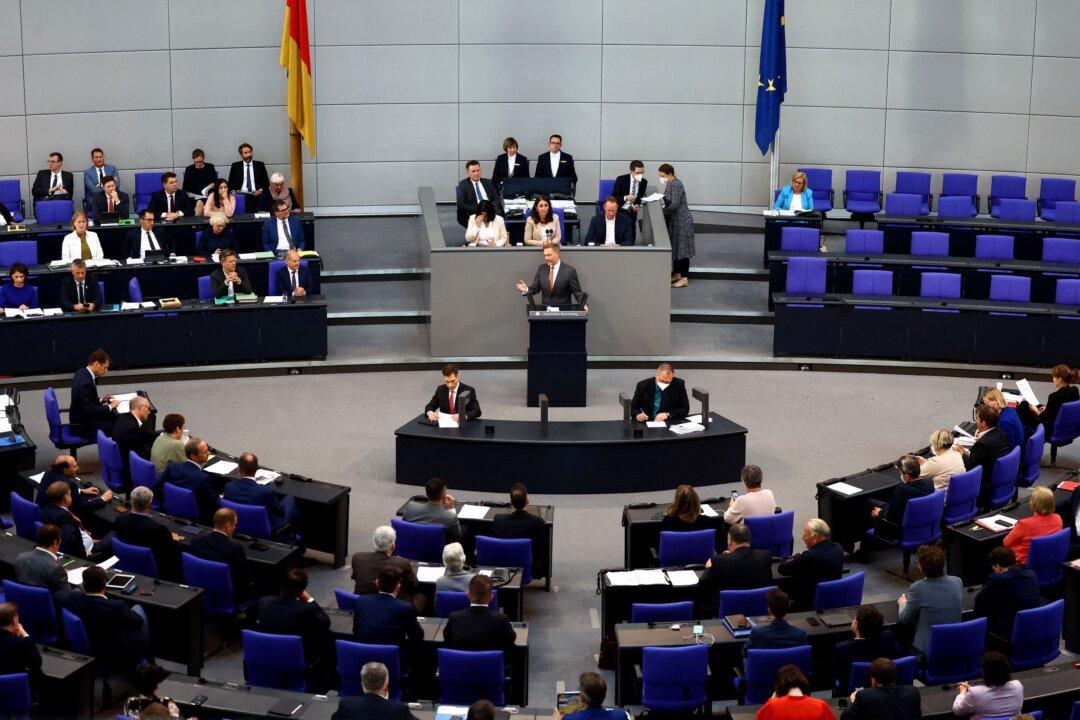Germany’s trade dependence on China has grown to “dangerous” levels, according to the country’s finance minister, with Berlin’s trade deficit with Beijing more than doubling last year, a development some experts warn can result in serious geopolitical implications.
“Dangerous development: The German trade deficit with #China more than doubled in 2022. We should learn from the experiences with Russia. Instead of becoming too dependent, we urgently need to rethink—and rely on more free trade with value partners,” Finance Minister Christian Lindner stated in a tweet on Feb.10. Germany registered an €84 billion trade deficit with China in 2022, up 115 percent from around €39 billion a year earlier.





